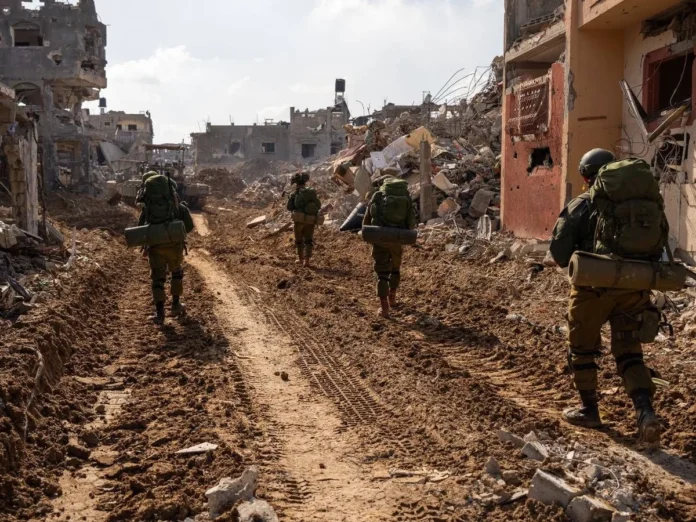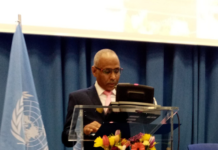The Harrowing Impact of Israeli Military Actions on Palestinians
The ongoing conflict between Israel and Palestine has resulted in a profound humanitarian crisis, particularly affecting the Palestinian population in Gaza. Testimonies from representatives of the State of Palestine convey a somber reality: families are torn apart, homes are destroyed, and basic rights are continually violated. As the Israeli military conducts operations, the repercussions on civilians are devastating, leading to significant loss of life and widespread suffering. Each incident not only erases individual lives but shatters the very fabric of families and communities.
Specific actions, such as the targeting of hospitals and schools, have further aggravated the humanitarian situation. Reports indicate that medical facilities, which should serve as sanctuaries for the wounded, often face indiscriminate attacks, complicating care for the injured and ill. Schools, places intended for education and safety, have similarly come under bombardment, forcing children to experience the terror of war rather than engaging in learning. These egregious actions reflect a troubling disregard for international humanitarian law, calling into question the moral obligations of military conduct and the protection of civilian lives during conflicts.
The emotional toll on Palestinian families is immeasurable. Survivors recount their harrowing experiences of loss and trauma, echoing the collective anguish felt across the region. The grief from losing loved ones, homes, and the sense of security is a pervasive reality for many, further compounded by the insufficient humanitarian aid due to blockades and military restrictions. Moreover, the psychological impacts of enduring continual violence and instability contribute to a cycle of despair, leaving long-lasting scars on a generation that has witnessed unimaginable suffering. This ongoing conflict raises critical questions about humanity, compassion, and the moral responsibilities we must uphold in times of war.
The Role of Arms Suppliers in Facilitating Violence
The dynamics of armed conflict are intricately tied to the involvement of arms suppliers, particularly in the context of the Israeli military. States that provide military support to Israel play an integral role in perpetuating violence against Palestinian civilians. This encompasses a variety of arms, including advanced military technology, small arms, munitions, and surveillance systems. The extensive scale of these supplies often reflects a broader geopolitical strategy, where states view their military partnerships as essential to national interests.
While arms suppliers often justify their support based on mutual strategic interests, the implications of their actions are profound. The weapons provided to the Israeli military have been utilized in numerous operations that have resulted in significant civilian casualties. Reports indicate that advanced military equipment, such as drones and precision-guided munitions, is frequently deployed in situations where non-combatants are present, raising serious ethical concerns. The complicity of these supplier states becomes evident when examining the legal framework governing arms exports. According to international law, particularly the Arms Trade Treaty, suppliers are obliged to assess the potential use of the weapons they export. Failing to do so not only undermines these legal commitments but also contributes to systemic violence against vulnerable populations.
Moreover, the moral responsibility of arms suppliers cannot be understated. By continuing to supply weapons amidst reports of their use against non-combatants, these states risk being complicit in actions that some observers have characterized as genocide against the Palestinian people. The death toll and suffering endured by the Palestinian population necessitate a reevaluation of international arms trade practices. As the global community becomes increasingly aware of these issues, there emerges a collective call for accountability and a cessation of arms supplies to Israel. Such a shift is essential in working towards sustainable peace and justice for those affected by the ongoing conflict.
Calls for Disarmament and the Need for a Weapon-Free Zone
The ongoing Israeli-Palestinian conflict has reignited global discussions surrounding the urgent need for disarmament, particularly the establishment of a weapons-of-mass-destruction-free zone in the Middle East. Countries such as Turkiye and Bolivia have openly criticized not only the military capabilities of Israel but also the broader implications of its nuclear arsenal. These nations argue that the existence of such weapons heightens the risks of a regional escalation, potentially leading to catastrophic consequences. As tensions rise, the calls for a concerted international effort to achieve disarmament grow louder, with an emphasis placed on the pivotal role that existing treaties should play in this process.
The geopolitical landscape is increasingly complicated by military alliances that ostensibly serve to enhance security. However, these alliances can simultaneously exacerbate existing conflicts by entrenching warfare as a means of resolving disputes. The conflicts fueled by these alliances lead to a persistent cycle of violence, undermining the possibility of enduring peace in the region. The call for a weapon-free zone serves as a counterpoint to this prevailing militarization, promoting dialogue over aggression and advocating for a shared vision of regional stability.
Moreover, international cooperation is paramount for effective disarmament initiatives. Countries must not only uphold existing treaties but also engage in meaningful diplomacy that addresses the legitimate security concerns of all parties involved. The pursuit of disarmament should not be perceived merely as an act of goodwill; rather, it must be framed as a necessary step toward sustainable peace and mutual security. Failure to embrace these calls for disarmament may perpetuate a cycle of violence that endangers not only the Middle East but also global stability as a whole.
Consequences of Arms Proliferation on Global Security
The proliferation of arms, especially small and light weapons, presents formidable challenges to global security. Countries experiencing turmoil, such as Ukraine and Haiti, serve as glaring examples of how the irresponsible transfer and mismanagement of weapons can lead to prolonged instability and conflict. In Ukraine, armed conflict has escalated partly due to the influx of arms, which has significantly influenced the dynamics of warfare and affected regional and international security. Similarly, in Haiti, the rampant availability of firearms has contributed to a growing humanitarian crisis, exacerbating gang violence and impeding efforts aimed at restoring order and governance.
In many cases, arms proliferation not only fuels conflict but creates a cycle of violence that is difficult to break. The availability of these weapons in conflict zones often empowers non-state actors, undermining governmental authority and provoking further instability. This scenario underscores the critical necessity for effective export controls, which are vital in mitigating the uncontrolled spread of arms. Countries must recognize that their domestic arms transfer policies have far-reaching consequences beyond their borders, affecting not only regional peace but global security as a whole.
Moreover, international cooperation stands as an essential pillar in combatting the ramifications of arms proliferation. Through comprehensive treaties and agreements, states can work together to enhance the mechanisms aimed at curbing arms diversion and ensuring that weapons do not reach unauthorized users. Initiatives such as the United Nations Arms Trade Treaty emphasize the need for countries to adopt stringent regulations around the sale and distribution of weapons, thus promoting accountability and transparency. Ultimately, the interconnectedness of global security efforts mandates that nations prioritize collaborative actions to eliminate the drivers of instability rooted in irresponsible arms transfers, paving the way toward a more peaceful international landscape.





